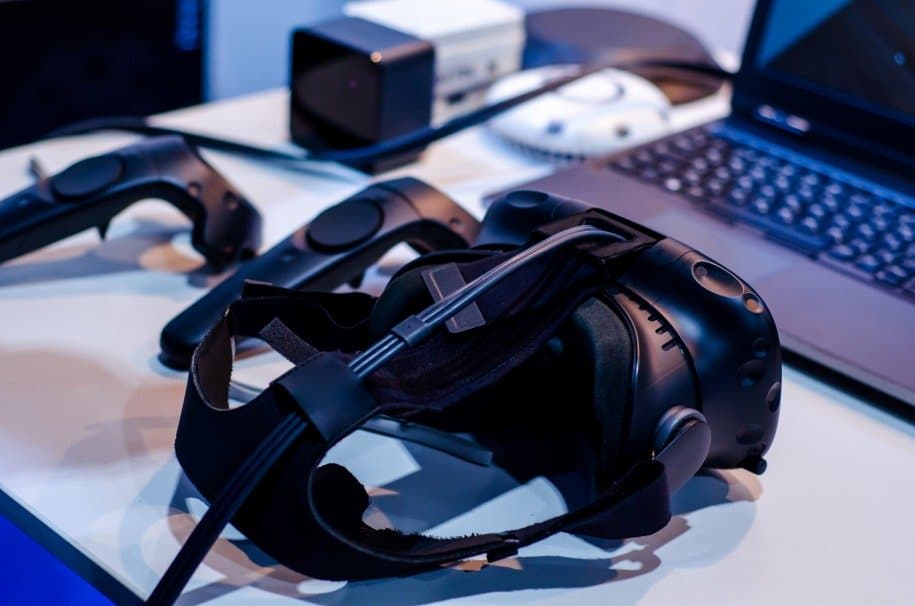Every ten years or so, the gaming industry tends to take a significant leap forward in a way that surprises and delights people in equal measure.
In the 1970s, arcades were all the rage. The 1980s brought us the first 8-bit home consoles like the Nintendo Entertainment System, which were then succeeded by 16-bit and even 64-bit consoles in the 1990s. The early 2000s brought us online gaming and an era of 4K games with HDR (high dynamic range) and other features is now upon us.
Which, of course, demands the question: when you consider how far gaming has come in just the last ten years, what do the NEXT ten have in store for us all?
The answer to that question is certainly fun to think about... as are the wide array of different stats that may shed insight into exactly what the future will bring gaming aficionados around the globe.
The "Console Wars" May Be a Thing of the Past
For the last several decades, home console gaming was traditionally characterized by a "war" of sorts with every new generation of hardware that was released. The Super Nintendo took on the Sega Genesis head-to-head. The PlayStation came out on top over the Nintendo 64. Microsoft's Xbox has been directly competing with each successive generation of Sony's PlayStation. The list goes on and on.
Part of this had to do with the fact that many gamers had to essentially pick one system and stick with it. As consoles cost hundreds of dollars at the time of launch, few people could afford multiple units - meaning that whatever you bought into initially was probably what you were going to have for the next few years at the very least. Many people decided by buying into whatever platform their friends had so that they could play multiplayer games as often as possible - thus moving hundreds of millions of consoles over the next several years.
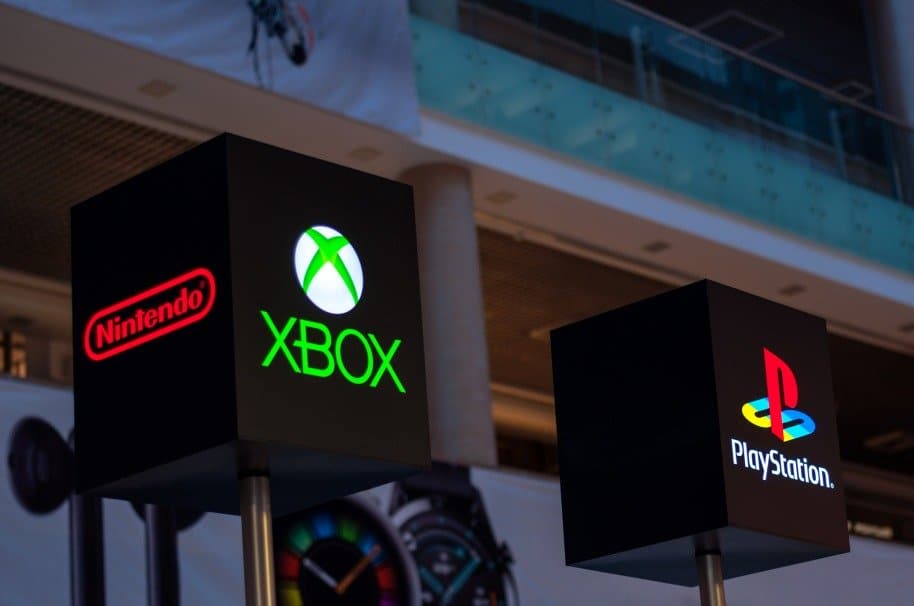
Minsk, Belarus - november 1, 2019 : Logo of xbox, playstation and nintendo on cubic black signs in the mall. concept of large gaming companies, selling games and game consoles
Interestingly, however, this may all be changing as the business model of the video game industry does the same. According to one recent study, a massive 88% of the total revenue generated by the video game industry in 2017 came not from the consoles themselves, but from the games people played on them.
This is important for a few different reasons. For starters, "console exclusives" are quickly becoming a thing of the past, too. Gone are the days where you could ONLY play a "Metal Gear Solid" or a "Destiny" on a Sony PlayStation or an Xbox 360, respectively. Sure, something like "Final Fantasy VII Remake" may be exclusive to the PlayStation 4 for the first year - but it'll certainly come to other systems after that. With gamer backlogs already dozens of titles deep if they're lucky, a lot of people are more than comfortable waiting.
Secondly, thanks to the Internet, cross-platform multiplayer gaming is actually becoming quite popular. There was an age where it was unthinkable to hop online and play "Call of Duty" from your Xbox One against a PlayStation 4 rival... but that day is officially here, with "Call of Duty: Warzone."
Based on all of this, it's easy to see how over the last few years the consoles have become less important than the games themselves. Even the next generation of hardware - Sony's PlayStation 5 and Microsoft's Xbox Series X - are quite similar in terms of technical specifications. With that in mind, it's easy to see an era not too long from now where people are no longer loyal to hardware in the way they are today, but instead throw their passion (and their money) behind whichever AAA title is popular at the moment.
The Brave New (Mobile) World

MOSCOW, RUSSIA - December 2019: Playing a PUBG Mobile battle royale games on Apple Iphone 11 Pro gaming smart phone.
Speaking of the end of the console wars, there may very well come a day where the consoles themselves essentially become a thing of the past. Die-hard Nintendo, Microsoft and Sony loyalists may find it hard to believe, but it's true - and we're probably closer to this reality than you might think.
Case in point: nearly 70% of all Generation X gamers actually prefer to play their favorite games on their smartphones, tablets and other mobile devices. Based on this, it should come as a surprise to absolutely nobody that mobile makes up nearly 51% of the total gaming market worldwide.
Part of the reason why this will be difficult to believe for so many people has to do with the way "mobile" gaming has always been seen by those who have been playing games for their entire life. Nintendo's original GameBoy was great for playing a quick "Mario" or "Zelda" title on-the-go... but it could never replace the feeling or experience of playing "Super Mario Bros. 3" on an actual NES. Portable consoles were always seen as the "younger sibling" of their more powerful home-based counterparts and the games released for them were viewed as "second class citizens" because of it.
When you consider how technologically advanced modern day smartphones are, however, this isn't really the case any longer. Apple's iPhone is literally more powerful than the computers used to send men to the moon by NASA in the 1960s. Internet connections are getting faster all the time, which is why you're starting to see services like PlayStation's Remote Play that allow you to stream games from your PS4 to your smartphone or tablet (or even your desktop computer) over a Wi-Fi connection.
At that point, what does "owning a console" even mean anymore? Is there really a difference any longer between a "real console" and a handheld or mobile device?
Of course not - meaning that once again, it's all going to come down to the games themselves.
Gamers are going to go where the hot games are and, more often than not, that will be in the mobile space. It's easy to see a scenario where the gaming industry a decade from now looks quite a bit different than it does today... and there will probably be a lot fewer consoles laying around, too.
Nearly Everyone Will Be a Gamer (If They Aren't Already)
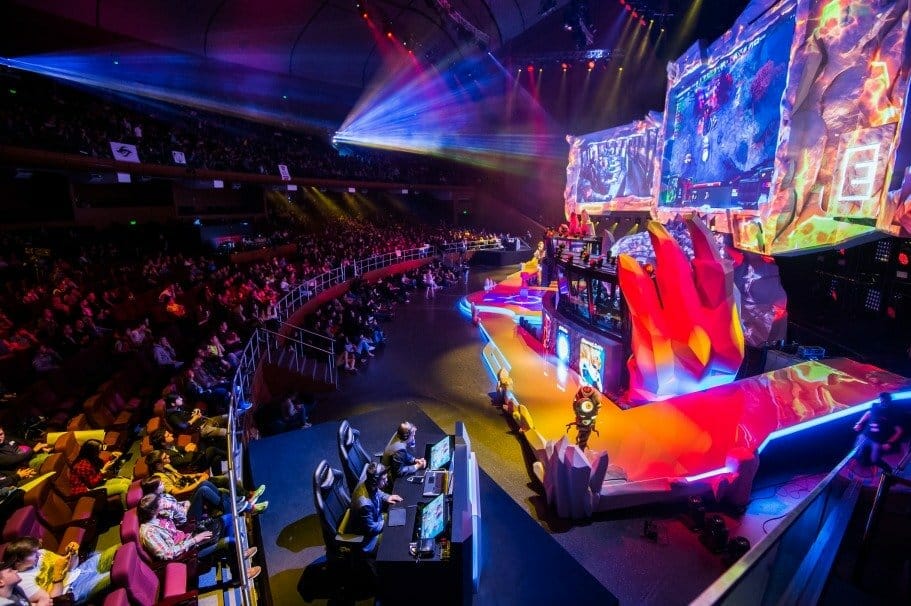
MOSCOW, RUSSIA - MAY 13 2016: EPICENTER MOSCOW Dota 2 cybersport event. Main scene and auditorium
Another important trend to pay attention to in terms of the future of gaming has to do with the idea of who the "average gamer" actually is in the first place.
In the late 1980s and early 1990s, everyone had their stereotypical image of what a video game player looked like - they were probably male, they were probably young and they were probably a bit on the "nerdy" side.
Flash forward to today, and nearly 65% of all American adults play video games - a trend that shows absolutely no signs of slowing down anytime soon. Not only that, but 46% of all gamers are female - a number that is also expected to increase over time.
A lot of this has to do with the fact that more Americans own smartphones than ever - which is a big part of why mobile gaming is on the rise, too. This, coupled with the fact that more developers are creating software aimed at the ever-popular "casual" category, is building to a perfect storm in the industry in the best possible way.
Because of this, over the next 10 years we'll finally hit the point where nearly anyone could be a gamer regardless of their age, their gender or other demographic factors that caused people to fall outside of this association with everyone's favorite hobby in the past.
Downloadable Content is Here to Stay
If you ask any hardcore gamer what they really think about DLC or "downloadable content," you'll probably find that their opinions are very... complicated.
On the one hand, it's great that developers continue to support their titles well after release. Putting out new levels, costumes or other items is a great way to keep people engaged - even after they've fully finished the "story" mode and have discovered nearly everything the game already has to offer.
On the other hand, there's an unsettling trend in gaming recently where some developers use the carrot of DLC as an opportunity to release a title that doesn't really feel finished. "Why do we have to work so hard to get this ready and polished for a May release?", they ask themselves. "We can just keep patching it for the rest of the year and implementing new items along the way."
Regardless of which scenario you choose to buy into, one thing is for sure: DLC is literally as popular as it has ever been and this, too, shows no signs of changing over the next decade.
Consider that, according to a recent Capcom Annual Report:
- The "package" market - that is, the portion of the gaming market that relies on selling fully finished and completed games with no supplementary content - had a massive 80% of the market share in 2011. By 2017, that number had decreased to just 46%.
- In 2011, DLC was attributed to just 20% of the total industry's market share. That number had increased to 54% by 2017.
- Overall, the market value of DLC increased by a massive 121% in just seven years.
All of this paints a fairly clear picture that downloadable content isn't just a passing fad or "hot trend" that will soon be forgotten (we're looking at you Virtual Boy). Especially once publishers realize they're no longer as dependent as they once were on console exclusive deals to generate revenue (as outlined above), expect more and more studios to embrace the wave of DLC with open arms.
Physical Media: A Thing of the Past?
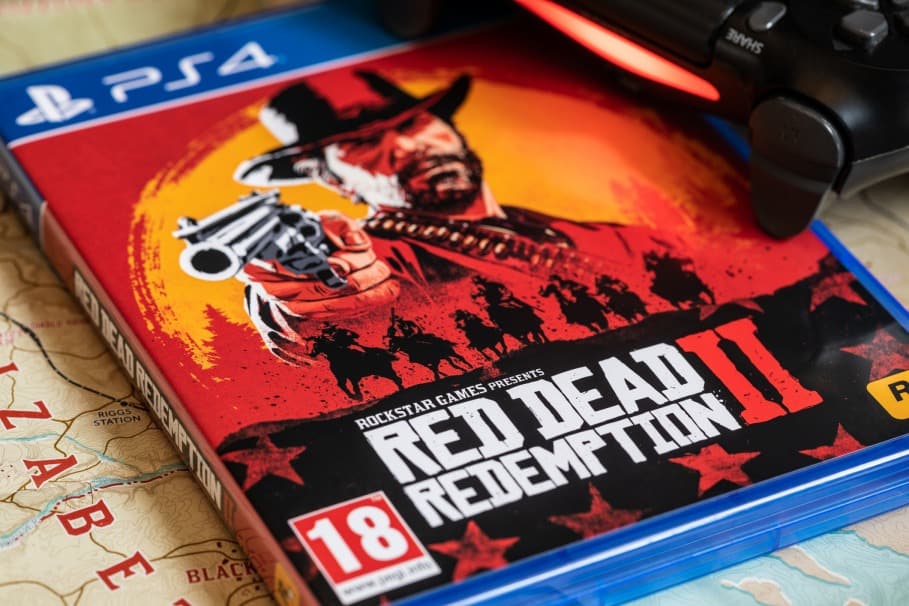
NANTES, FRANCE - OCTOBER 26, 2018: Red Dead Redemption 2 game release for PS4 on October 26,2018. in Nantes, France.
For years, people have been touting the death of physical media in nearly all forms of entertainment. At one point, Hollywood studios literally generated more money from DVD sales than they did from ticket sales in local cinemas. This is a large part of the reason why you'd see sequels to movies that underperformed at the box office. So long as they sold on home video, there really wasn't much of a problem.
Of course, DVD (and Blu-ray, and UHD) sales of films and television shows are down across the board. For awhile, it looked like this wasn't a fate that the gaming industry would suffer. Sure, you could download that hot new "FIFA" game to your console - but as storage was still expensive and you could only have a few games installed at any one time, the needle wasn't really moving very far in one direction.
Until Coronavirus.
By far, the biggest game to launch during the early weeks of the Coronavirus was Square Enix's long-awaited "Final Fantasy VII Remake." The problem was that it was released at a moment when stay-at-home orders were hitting most states and non-essential businesses were closing. This meant that finding a physical copy quickly became an uphill battle...
... but those who were fine with the digital download had no problem.
Indeed, it may have taken a world-altering event like COVID-19 to finally break some gamers free from their nostalgia of physical gaming discs as a format. There will come a day where the Coronavirus epidemic is over, and things will more or less return to normal.
But over the next ten years, it isn't a guarantee that the popularity of physical media for gaming will return along with it.
Gaming Moves Onto the Internet Permanently
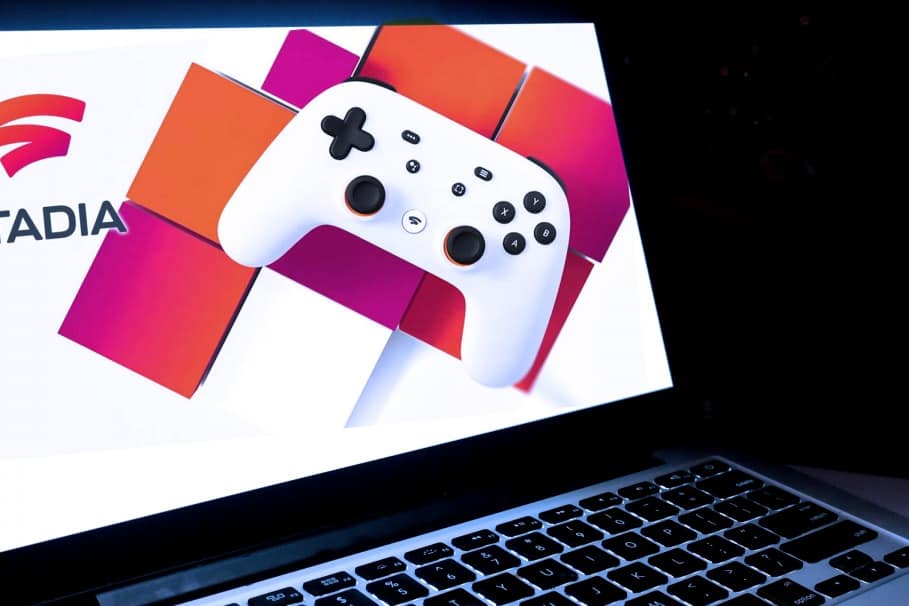
Playing cards and computer screen with the Google Stadia logo which is a subscription service for video games in the cloud operated by Google. United States, California. Wednesday, October 30, 2019
It's funny to think back to the months leading up to the release of Microsoft's Xbox One console in 2013. One of the major forms of criticism lobbied in its direction (and one of the things that may have thrown the entire generation to Sony's favor) actually had to do with a rumor outlining the fact that the console would require an "always on" Internet connection to function.
A lot of people saw this as an attempt from Microsoft to create an even stronger digital rights management system than it already had. But the idea that a console you spent hundreds of dollars on would rely on what (for many users) was still a modest, unreliable Internet connection to even function created a wave of negative buzz that the gaming giant had a hard time getting out from under. People were upset that even single player games with NO online multiplayer functionality would still require an Internet connection to load - among other issues.
My, what a difference a few years makes.
Thanks largely to the fact that high-speed Internet connections have a higher penetration rate than ever in homes across the country and even gigabit Ethernet connections have become the new norm, online gaming has essentially become the new norm for many people. You'd have a hard time even finding a popular title that still included offline, local multiplayer capabilities.
But just how popular has online gaming become, you ask? In 2019, online gaming generated 47% of ALL desktop and console gaming revenue.
Yes, you read that right.
People are finally warming up to the idea that having a console that needs a constant Internet connection really isn't such a scary thing... and as the next generation of hardware launches is almost upon us, you can expect both Microsoft and Sony to respond in kind.
In the End
But maybe the most important statistic concerning the next decade of gaming is the following: by as soon as 2021, there will be close to 2.8 billion gamers worldwide.
To put that into perspective, there are only about 7.5 billion people on the planet as you read this.
Which means, of course, that gaming is here to stay. The industry itself will continue to grow and evolve - the same as it always had. No, the infrastructure the industry is propped up on in 2030 probably won't resemble anything close to the current state of things in 2020.
But when you consider just how far the industry has come since 2010 and how much innovation and creativity have arisen as a result, it's clear that this isn't necessarily a bad thing.


